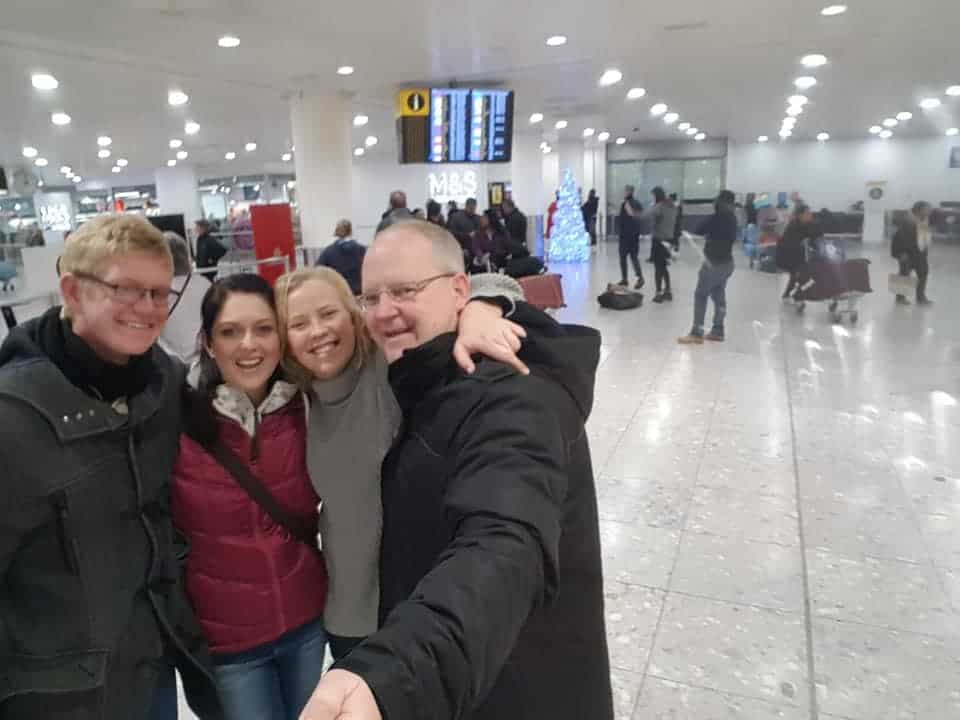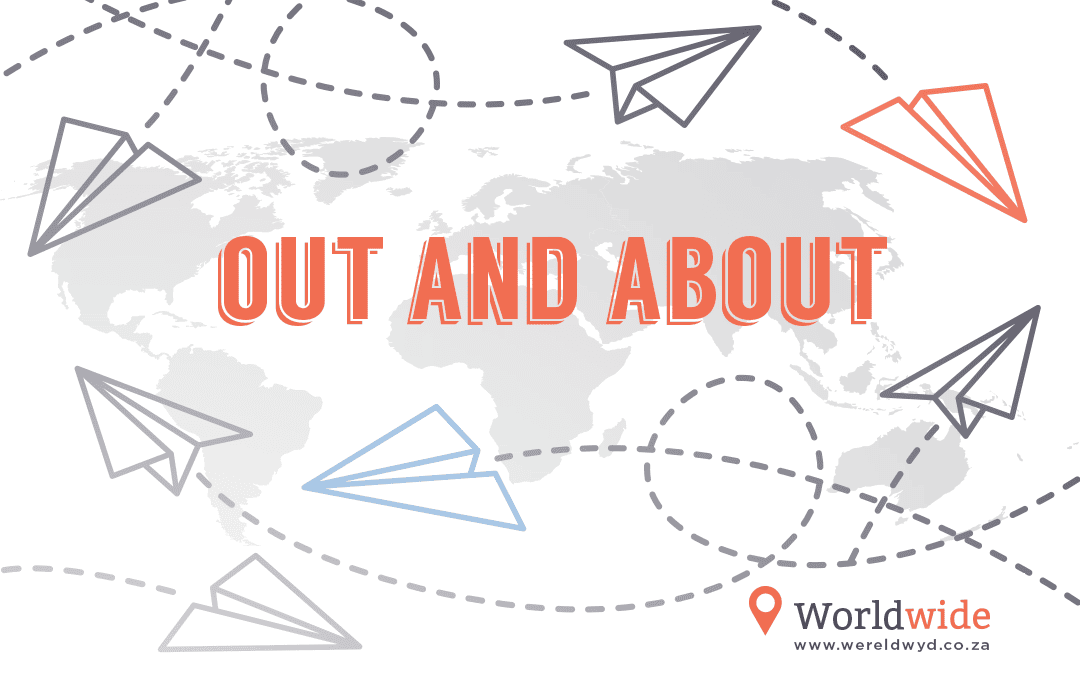Out and About is the column in which we talk to people who nowadays live abroad, or who had been living and working abroad. This week we talk to Maxie Heppell, who lives with her husband Èmil in Newbury in the United Kingdom.

From where in South Africa are you and why did you decide to live abroad?
My husband and I are actually both Free Staters – I’m from Trompsburg and he’s from Jagersfontein. But Èmil spent his whole career in banking (FNB) and we moved regularly. His last placement was as CEO of FNB in Lesotho and we lived in Maseru for two years. However, due to a rare genetic disease, he lost his sight in 2015 to such an extent that he was declared medically unfit, and we retired (still very young) in Jeffreys Bay.
About three years later, an old banking client from Lesotho mentioned that their business was ready to take a new product worldwide. We immediately seized the possibility of a new adventure! I am currently Head of Business Development: Europe, and my husband is my biggest supporter and sounding board.
Was it hard to adapt?
Not really. We have lived and vacationed in England before. To be honest: The adjustments were “nice” adjustments! To name a few: TESCO (Pick n Pay) remains open until 00:00; there is a number you can call if you don’t feel well but you’re not sure whether you should go to the doctor; and the support that Èmil receives here with his limited sight is unbelievable.
Tell us more about your family.
Èmil has two children living in South Africa. Amelia is studying education at North-West University and Reevan is a second-year student in Industrial Engineering at Stellenbosch University. We don’t see them as often as we would like – especially not now. Thank goodness for technology!
When they do visit us, we usually enjoy a long and well-planned tour of the best of the English tourist attractions!
Do you still speak Afrikaans?
Definitely! With each other, of course. But there are many South Africans here in England, and even though they speak English, they usually understand Afrikaans very well! My hairdresser, our insurance agents and the person whom we bought our car from all speak Afrikaans. My husband also has two cousins who live here, so family outings are big Afrikaans occasions!
How often do you see your family?
Not much. We have been here for almost two years now, and I have not been back to South Africa. My mother and father have both passed away, but I still have a brother in South Africa.
Èmil has been back twice already: The first time because of his father’s health and more recently to sort out the children’s studies for the new year. Èmil has three brothers, and they enjoy spending time together.
There are many South Africans in the United Kingdom. Do you get together sometimes?
As already mentioned – there are many South Africans here! Especially in the area where we live. We have not yet started visiting people because in March 2020 everything here came to a standstill due to COVID.
What was the strangest thing to get used to?
I sometimes still clasp my handbag and keep looking over my shoulder. Awful habit to get rid of.
On the other hand: We are huge dog lovers and have brought our collie with us. It’s so nice to see the dogs going with their owners everywhere: to the pub and to the shop and to the forest and even to the bank!
We’re still getting used to the taste of English food. Salt seems to be a swear word, the sugar is made from beetroot, the potatoes are sweet, and the vinegar has a bad taste. Thank goodness for South African shops!
A dirty car is not a sign of laziness or indifference. It’s just a matter of impossibility!
What do you like most about your life there?
We often say thank you for the wonderful freedom and security. Systems also work wonderfully well, and crime is handled as it should be.
The English actually have a great sense of humour! On TV they may look awful stiff upper lip, but when you see them in their everyday environment, they also pick each other out across the post office floor; they are considerate and friendly and happy to help.
Volunteering is big here, and there is never a shortage of people pointing you in the right direction in a busy hospital or packing food parcels at the “Food Bank”. Even now, many people are offering to help at the COVID vaccination stations or to buy and deliver groceries for those who are isolating or whatever is needed.
We’ve learned to live a simple life. I really don’t need a whole kitchen full of crockery; two plastic bowls work just as well as five. You don’t need so many clothes, and ironing is completely “overrated”. If you can’t clean the whole house today, then you do half today and the rest tomorrow.
Here are hundreds of free TV channels with great programs. You really don’t have to pay for TV.
There is so much to see and experience here. (Well, not now with COVID …) Each town or city has its unique character and history and tourist attractions to experience. And many of them are free.
What’s the one thing no one told you about emigration?
How expensive it is. Not just the process of getting here, but the everyday cost of living. When you’re doing your calculations, add at least another 20% per month.
Used cars are very cheap here! For the equivalent of R30 000 you can buy a family car in good condition that will last you for several years. We have a Vauxhall (Opel) Astra (automatic), and although not spotless, it is exactly what we need here.
We will always feel the desire to belong, but survival requires a coping mindset above the heart’s desire.
Feel free to visit Maxie’s blog Genade is ’n dag lank
Do you live abroad, or have you recently returned to South Africa? We want to hear from you. Please send us an e-mail to wereldwyd@afriforum.co.za.
Share on
Latest articles




















